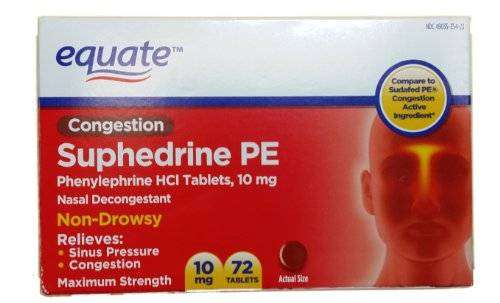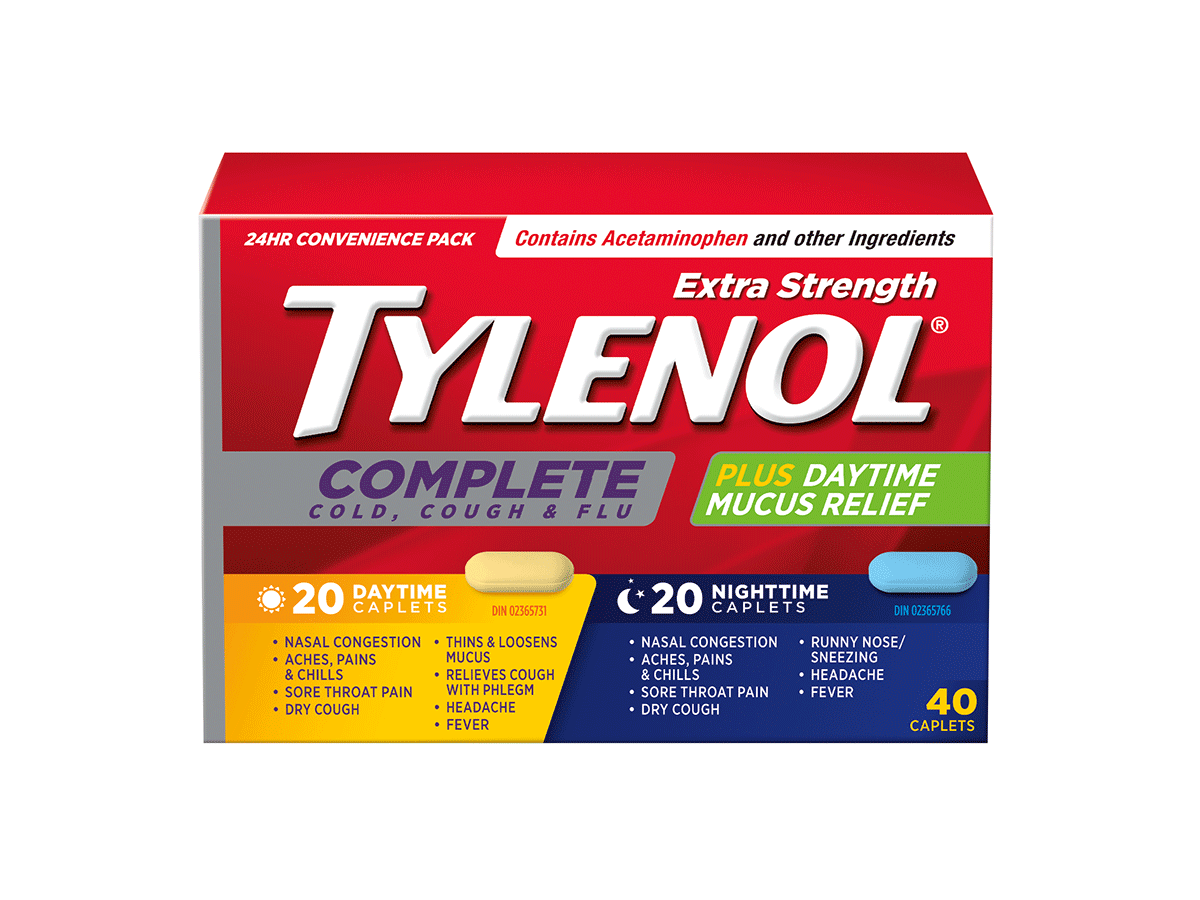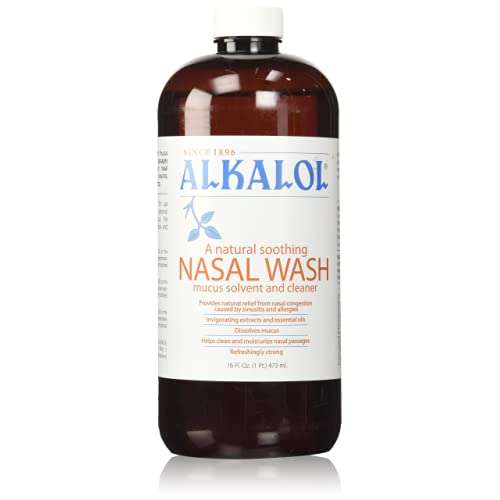Sinus Infection Medications: Medicines That Help Treat Sinusitis
Sydney Garrow
Sydney Garrow
Sydney is a contributing health writer and editor who enjoys shedding light on health topics, making information available to anyone who wants it, and ending stigmas or lack of access to care and treatment.
Certified by
Po-Chang Hsu, M.D.
Po-Chang Hsu, M.D.
Dr. Hsu received his medical degree from Tufts University in Boston, Massachusetts, and holds a Masters of Science degree from both Harvard University and Tufts University. Outside of the medical profession, Dr. Hsu loves to write, learn new languages, and travel.
7 minutes
Where Are The Sinuses Located
The sinuses are named according to their location in the skull bones:
- The frontal sinuses are located over the forehead, above the eyes on both sides.
- The maxillary sinuses are located over the cheek area, in the bone known as the maxilla, located under the eyes on both sides of the face.
- The ethmoid sinuses are located in the bone that divides the eyes and nose.
- The sphenoid sinuses are located in the sphenoid bone at the center of the skull, behind the eyes.
The sinuses are lined by mucous membranes that secrete fluid and are connected to the nasal cavity by small channels or ducts. The sinuses are sometimes collectively referred to as the paranasal sinuses because of their proximity to the nose.
Inflammation due to any cause can cause a buildup of fluid and increased sinus pressure, causing the typical symptoms of a sinus headache.
When To See A Doctor
There are a few instances in which you should consult a doctor, including:
- Symptoms lasting 10 days or longer
- Severe sinus pain
- Blood in your nasal discharge
These symptoms could be a sign of a more serious infection or condition like nasal polyp disease, chronic sinusitis, or a cancerous growth in the nasal or sinus cavity.
“Untreated sinusitis past 7-10 days will cause prolonged crippling symptoms that may affect your quality of life and your ability to work or study,” says Gan Eng Cern, a fellowship trained Consultant Ear, Nose & Throat Surgeon with a private practice. “If you have asthma or bronchitis, untreated sinusitis can in fact worsen these conditions.”
If you decide to see a doctor for your sinus congestion, he or she may prescribe antibiotics or an antifungal, depending on the cause.
“In rare cases, severe untreated sinusitis may lead to orbital cellulitis or orbital abscess,” adds Eng Cern. “They are known as infections of the eye. It also has the potential to affect the brain. For example, meningitis, brain abscess and sinus cavity clot are types of brain infections that may be caused by untreated sinusitis.”
You May Like: How Do You Get Malware Infections
Nasal Decongestant Sprays: Medicated Nasal Sprays
Afrin® nasal spray, Neo-Synephrine®, Otrivin®, Dristan® nasal spray and other brands decongest the swollen nasal membranes. They clear nasal passages almost immediately and are useful in treating the initial stages of a common cold or viral infection. Nasal decongestant sprays are safe to use, especially appropriate for preventing eustachian tube problems when flying, and to halt progression of sinus infections following colds. However, they should only be utilized for 3-5 days because prolonged use leads to rebound congestion or getting hooked on nasal sprays. The patient with nasal swelling caused by seasonal allergy problems should use a cromolyn sodium nasal spray. The spray must be used frequently during allergy season to prevent the release of histamine from the tissues, which starts the allergic reaction. It works best before symptoms become established by stabilizing the nasal membranes and has few side effects.
Can/should I Take A Sinus Decongestant For A Sinus Infection

You can take certain decongestants for a sinus infection. Decongestants that contain only pseudoephedrine or phenylephrine are more typically recommended for a sinus infection. Decongestants with additional ingredients like antihistamines may suppress your bodys immune response and interfere with your bodys ability to fight the infection. If you have a severe sinus infection, or if youre on antibiotics, consult with your doctor about the best OTC medication choice for you.
Don’t Miss: Best Antibiotic For Piercing Infection
Best Over The Counter Medicines For Sinus Infection 2020
If you are struggling with a stuffy or a runny nose, pain across your face, and extensive congestion, you might be dealing with a bad case of sinusitis. Dont worry, though a sinus infection isnt anything that could seriously threaten your health. It can, however, be very inconvenient and uncomfortable.
Fortunately, there are lots of treatments and medicines you can get over the counter to manage and relieve the symptoms of sinusitis. However, while these products are highly accessible, the sheer number of options can make it difficult to choose. So, which product is the best over the counter medicine for a sinus infection?
Let this buying guide help you land the right choice.
Common Antibiotics For Sinus Infections
Antibiotics may be prescribed when symptoms of a sinus infection warrant such treatment. Common antibiotics for sinus infection include:
- Zithromax
- Levaquin : Although this drug is often prescribed as a first line of therapy for sinusitis, it has serious side effects and should only be used as a last resort.
You May Like: Can Hiv Cause Ear Infection
What Are The Sinuses How Many Do We Have
A sinus is a hollow, air-filled cavity. For the purposes of this article, a sinus will refer to those hollow cavities that are in the skull and connected to the nasal airway by a narrow hole in the bone . Normally all sinuses are open to the nasal airway through an ostium. Humans have four pair of these cavities each referred to as the:
The four pairs of sinuses are often described as a unit and termed the “paranasal sinuses.” The cells of the inner lining of each sinus are mucus-secreting cells, epithelial cells, and some cells that are part of the immune system .
Functions of the sinuses include humidifying and warming inspired air, insulation of surrounding structures , increasing voice resonance, and as buffers against facial trauma. The sinuses decrease the weight of the skull. If the inflammation hinders the clearance of mucous or blocks the natural ostium, the inflammation may progress into a bacterial infection.
What Causes Nasal And Sinus Pain
Nasal and sinus membranes respond to viruses, allergic triggers, and common bacterial infections similarly. The membranes become swollen and congested. The congestion then causes pain and pressure. Your mucus production increases during the inflammation. This results in a runny nose. The nasal secretions may begin to thicken and slow the drainage. This can result in a sinus bacterial infection.
When the nasal membranes become congested, it may block the eustachian tubes leading to the ears, which results in a feeling of pressure in the ear or fluid behind the eardrum. Nasal airway congestion causes mouth breathing.
Every year, over 37 million Americans suffer from sinusitis. This includes nasal congestion, thick yellow-green mucus, facial pain, and pressure around the eyes. Frequently, before visiting a doctor, people try to get relief for their nasal and sinus discomfort by taking non-prescription or over-the-counter medications.
Also Check: Can You Flush Out A Sinus Infection
Also Check: Can You Cure A Bladder Infection Without Antibiotics
Sinus Infection Medication For Bacterial Causes
Bacterial sinus infections are caused by large amounts of foreign bacteria creating colonies in the sinuses, causing inflammation and infection. This happens when you touch your nose, eyes, or ears too often without washing your hands frequently.
There are several bacterial infections that may result in a sinus infection if symptoms worsen over time.
If over-the-counter medications are not working, you may need to seek a prescription for antibiotics as a sinus infection medication. Luckily, our sister site PlushCare gives you access to top doctors who can write prescriptions for many medications, including antibiotics for sinusitismake an appointment through PlushCare to get started.
Related Resources For Sinus Infections
* Prescription savings vary by prescription and by pharmacy, and may reach up to 80% off cash price.
Pharmacy names, logos, brands, and other trademarks are the property of their respective owners.
This article is not medical advice. It is intended for general informational purposes and is not meant to be a substitute for professional medical advice, diagnosis, or treatment. Always seek the advice of your physician or other qualified health provider with any questions you may have regarding a medical condition. If you think you may have a medical emergency, immediately call your physician or dial 911.
You May Like: Can An Infection In Your Tooth Spread
When To Call A Doctor
Most of the time, a stuffy nose will clear up on its own within a week. Nasal congestion that lasts longer may be a sign of a serious sinus infection in need of treatment. You may also want to see a doctor if the symptoms are interfering with sleep or your ability to function normally.
A stuffy nose may require medical attention if:
- You have a high fever.
- Your symptoms last longer than two weeks.
- Your nasal passages are completely blocked.
- Your skin or lips develop a bluish tinge .
- Your breathing rate is very rapid.
- You have difficulty breathing or catching your breath.
What Is A Sinus Headache

- A sinus headache is the result of inflammation and a build-up of pressure within the sinuses of the skull.
- The sinuses are cavities or pockets located within the bones of the skull.
- In addition to contributing to the strength and stability of the skull, the sinuses help to humidify and filter the air.
Don’t Miss: Minute Clinic For Ear Infection
Natural Remedies For Sinus Congestion
When you’re feeling stuffed up and miserable, getting to the drugstore seems almost impossible. Fortunately for you, there are a number of home remedies for sinus congestion relief, here’s three:
1. Humidity:Keeping your nasal passages moist when you’re experiencing sinus congestion may help to relieve that “stuffy” feeling. To do this, apply a warm, wet towel against your face or run hot water in the shower to unblock the sinuses. You could also use a humidifier for the same purpose.
2. Neti pot: A neti pot looks like a miniature teapot with a long spout. With the help of saline or a saltwater solution, these tiny nasal irrigation devices are used to treat congested sinuses, allergies, and the common cold. You can purchase a neti pot online or at your nearest health food or drugstore. Note of caution: Tap water isn’t safe to use as it’s not filtered or treated and may contain material that could cause infection or irritation.
3. Aromatherapy: Aromatherapy is a holistic healing treatment that uses essential oils to reduce pain or improve sleep. While there’s still research that needs to be done, some studies suggest specific essential oils may relieve symptoms of sinus congestion. According to the National Association for Holistic Aromatherapy , 1,8 cineole, the main component of eucalyptus oil, has been proven to clear airways of mucus and is a natural cough suppressant.
Things To Take Into Consideration
As you compare and contrast your options, it is clear that sinus pressure medicines can be vastly different from each other: this is because different people react differently to certain formulations, so pharmaceutical companies have developed various options to address each persons experience effectively.
Depending on your own bodys needs, as well as your personal preferences, it may be ideal to choose one option over another. Choose the best medicine for sinus pressure by remembering these main considerations when you step into the store.
- Treatment Form. Sinus pressure is the result of an accumulation of mucus, which commonly occurs as a cause of a viral or bacterial infection. Most of the treatments you will find for sinus pressure are geared towards resolving the symptom only and dont actually address the infection that initially caused the problem. Regardless, these products are highly effective at providing temporary relief of sinus congestion discomfort.
Most commonly, sinus pressure remedies come in three forms:
- Pills. Ideal for people on the go, capsules, and tablets are the slowest acting remedy. Despite this, however, they offer the longest-lasting results. Some pills target more than just sinus congestion, making them an effective remedy for holistic relief. Whats more, pills are also a convenient option for people on the go as theyre fairly easy to take.
Also Check: Is There Anything Over The Counter For Ear Infection
What Causes A Sinus Headache
Inflammation of the tissues lining the sinuses is the primary cause of a sinus headache. The inflamed tissues swell and produce secretions that clog the normal drainage system of the sinuses, causing a build-up of fluid and secretions. The pressure of this fluid build-up causes the pain of a sinus headache. Inflammation of the sinuses is known as sinusitis. The inflammation may arise due to an
- infection,
- allergic reaction such as hay fever, or
- irritation.
Most commonly, infectious sinusitis is due to a viral infection, but bacterial and fungal infections of the sinuses can also occur. Since the maxillary sinuses are located in the cheekbone, infections of the upper teeth can spread into these sinuses. In very rare cases, benign or malignant tumors can invade and block drainage in the sinuses and lead to a sinus headache.
YOU MAY ALSO LIKE
When It Comes And When It Goes
If you have allergies, you’ll start feeling symptoms soon after you come into contact with the stuff you’re allergic to. Your symptoms keep up as long as you’re still surrounded by those triggers.
Allergies can happen any time of year. They may be “seasonal,” which means you get them only in the spring or fall. Or they may be year-round. For instance, you might be allergic to pets or mold, which can be a problem no matter the season.
Sinusitis usually happens after you’ve had a cold or allergies. But certain symptoms will keep going, even after your cold goes away. You’ll probably have a stuffy nose and cough for more than a week or two.
You may hear your doctor talk about two kinds of sinusitis: “acute” and “chronic.” There’s a simple way to tell them apart. If your symptoms last less than 4 weeks, it’s acute. If they go on for 3 months or longer, you have chronic sinusitis.
Don’t Miss: Facial Swelling With Tooth Infection
Vicks Vapoinhaler Portable Nasal Inhaler 2 Count
- Provides allergy medicine for sneezing, runny nose, itchy nose or throat, and itchy, watery eyes and cold symptoms like sneezing and runny nose.
- Works when you need it most with an allergy medicine in small, convenient antihistamine tablets that put your allergies to rest.
- 100-count pack of benadryl ultratabs antihistamine allergy relief tablets each containing 25 mg of the antihistamine diphenhydramine hcl for allergy relief that works when you need it most.
- Active ingredient, diphenhydramine hcl, provides relief for hay fever or other upper respiratory allergy symptoms and cold symptoms like sneezing and runny nose.
- Allergy medicine tablets for multi-symptom allergy relief intended to be used by adults and children ages six and up for relief of both indoor and outdoor allergies.
Effective Medicine For Sinusitis
If you have a sinus infection, it may become inflamed with thicker mucus that clogs your nasal passages. Your sinus will have increased pressure from fluid buildup. This can cause bacteria to become trapped, causing further infection to your lining. This is called sinusitis and can last 3-8 weeks. If you dont find any quality medicine for sinusitis, you can develop a chronic condition that will last longer.
Also Check: The Best Antibiotic For A Tooth Infection
Otc Medicine For Sinus Congestion
When your sinuses become inflamed and congested, this means that the tiny, air-filled spaces that are connected to your nasal cavity have been blocked or are unable to drain normally. This buildup of mucus then causes a feeling of pressure or “fullness” in your forehead, eyes, or jaw. Luckily, OTC medications, such as acetaminophen or ibuprofen, can alleviate pain caused by the pressure buildup.
Here are the most common types of OTC medication for sinus congestion:
1. Decongestant: Nasal decongestants are available in tablets, liquids, and nasal sprays and work by reducing blood flow to the sinuses, ultimately reducing nasal swelling and inflammation. Popular nasal decongestants include:
- Phenylephrine with brand names Sudafed PE, Vicks Sinex, and Pretz-D.
- Pseudoephedrine with brand names Sudafed, Dimetapp Decongestant, and 12 Hour Cold Maximum Strength.
2. Pain reliever: There are two main categories of pain relievers:
3. Antihistamines: Antihistamines are commonly used to treat allergies, but they can be used to treat stomach problems and the common cold among other ailments. Antihistamines work by blocking the effects of histamine, which your immune system releases to protect against foreign invasions. Histamines cause symptoms like inflammation, congestion, a runny nose, and sneezing. So antihistamines are designed to alleviate those symptoms. Popular antihistamines include cetirizine and fexofenadine .
How Sinus Infection Is Treated

The treatment for a sinus infection depends on the type of sinusitis and the source of the inflammation or infection. You might feel better with treatment for your symptoms as your sinus infection resolves.
Acute viral sinusitis can usually resolve on its own, acute bacterial sinusitis can usually be cured with antibiotics, and anti-fungal medications might be needed for treating fungal sinusitis, Getting treatment for allergies that might be contributing to an acute or chronic sinus infection can help, and endoscopic surgery may be needed in some cases of chronic sinusitis.
Treatment of chronic sinusitis may complicated, as abnormal tissue blocking the sinus cavities could require surgery.
Verywell / Tim Liedtke
You May Like: The Best Over The Counter Sinus Medication
Also Check: Oral Drugs For Yeast Infection